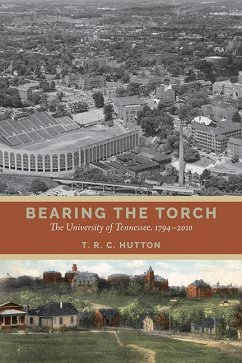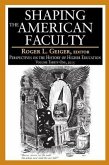"The University of Tennessee has its origins in Blount College, founded in 1794 and named after territorial governor William Blount even before Tennessee was a state. The last scholarly history of the university appeared in 1978, but this book presents a very different treatment. It seeks nothing less than to be a social history of the university, fully integrating historical context, and allowing the book's central 'character'--the university itself--to emerge among historical themes and concerns. For example, Hutton shows how the school's development was hampered in the early nineteenth century by Jacksonian notions of laissez-faire, including exceedingly cheap state funding (a theme that emerges often), how the school nearly disappeared as the Civil War raged in a very divided region, how the university found creative ways to resist reconstruction, how students embraced dramatic social changes during the Progressive era, and how in the Cold War era the school became a successful research institution"--
Hinweis: Dieser Artikel kann nur an eine deutsche Lieferadresse ausgeliefert werden.
Hinweis: Dieser Artikel kann nur an eine deutsche Lieferadresse ausgeliefert werden.








